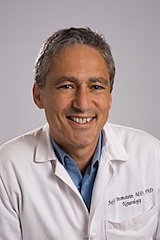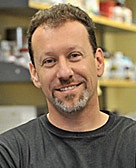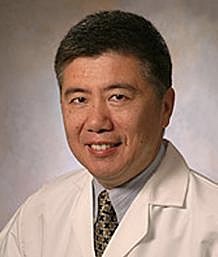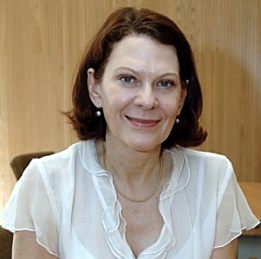Programs in 6 U.S. Cities Shine Spotlight on Parkinson’s Disease Clinical Trials

 “The importance of clinical trials to bring effective treatments to market is critical,” says American Parkinson Disease Association (APDA) President and CEO Leslie A. Chambers. “However, many people with Parkinson’s disease lack a basic understanding of clinical trials or why participating in a trial can contribute to better outcomes for themselves and for the Parkinson’s community.”
“The importance of clinical trials to bring effective treatments to market is critical,” says American Parkinson Disease Association (APDA) President and CEO Leslie A. Chambers. “However, many people with Parkinson’s disease lack a basic understanding of clinical trials or why participating in a trial can contribute to better outcomes for themselves and for the Parkinson’s community.”
To help get more vital information out about Parkinson’s disease (PD) clinical trials, the APDA is launching a series of in-person educational seminars titled “Parkinson’s Disease: Spotlight on Clinical Trials — What You Need to Know,” to be offered throughout March in six U.S. cities.
This program is intended to provide an expert perspective on clinical trials for Parkinson’s disease and designed to help people affected by PD — those with the disease, family members, and care partners — better understand what clinical trials are, reasons why they are important, and how to become a trial participant.
Dates, cities, and and keynote speakers for the seminars are:
March 2, 2016
South County Civic Center, 16700 Jog Rd., Delray Beach, Fla.; 2-4 p.m.; registration begins 1:30 p.m.; boxed lunch will be provided.
 The keynote speaker is Nisha Chhabria, M.D., movement disorder specialist, PD & Movement Disorders Center of Boca Raton. Chhabria will discuss the role of clinical trials in Parkinson’s disease; phases of a clinical trial from idea to approval; participation in a clinical trial, including consent, eligibility, schedule of activities, and how to find ongoing clinical trials.
The keynote speaker is Nisha Chhabria, M.D., movement disorder specialist, PD & Movement Disorders Center of Boca Raton. Chhabria will discuss the role of clinical trials in Parkinson’s disease; phases of a clinical trial from idea to approval; participation in a clinical trial, including consent, eligibility, schedule of activities, and how to find ongoing clinical trials.
March 7
RWJ Fitness and Wellness Center, Community Room,
100 Kirkpatrick St., New Brunswick, N.J.; 1-2:30 p.m.
The keynote speaker is Roseanne D. Dobkin, Ph.D., associate professor of psychiatry at Robert Wood Johnson Medical School, Rutgers, The State University of New Jersey. Dobson and nurse practitioner Deb Caputo, NP, APRN, BC, will discuss the role of clinical trials in Parkinson’s disease; phases of a clinical trial from idea to approval; participation in a clinical trial, including consent, eligibility, schedule of activities, and how to find ongoing clinical trials.
March 10
 Danversport Yacht Club, 161 Elliott St., Danvers, Mass., 10:30 a.m to 12:30 p.m; light refreshments will be served.
Danversport Yacht Club, 161 Elliott St., Danvers, Mass., 10:30 a.m to 12:30 p.m; light refreshments will be served.
The keynote speakers are Marie Saint-Hilaire, M.D., FRCPC, associate professor of neurology and medical director of the PD & Movement Disorders Program, Boston University Medical Campus; and Ray James, BS, RN, clinical nurse research coordinator at the PD & Movement Disorder Center, Boston University Medical Campus.
March 10
Brooklyn, New York; keynote speaker is Tara Hayes, MS, RPA, physician assistant, New York Methodist Hospital.
March 12
Los Angeles, California; keynote speakers are:
 Jeff Bronstein, M.D., Ph,D., director, UCLA Movement Disorder Program; and Gal Bitan, Ph.D., professor, UCLA.
Jeff Bronstein, M.D., Ph,D., director, UCLA Movement Disorder Program; and Gal Bitan, Ph.D., professor, UCLA.
Bronstein was recently awarded one of six National Parkinson’s Disease Centers at the Veterans Administration Medical Center with the goal of furthering research, education, and clinical care in the Southwest. His lab studies the cause of PD using cell models and a newly developed zebrafish model. His work is supported by the NIH and private foundations. Bronstein also directs clinical trials to develop new therapies for Parkinson’s that include transplantation and deep  brain stimulation. He has received several awards and is widely published in the field.
brain stimulation. He has received several awards and is widely published in the field.
The Bitan laboratory at UCLA focuses on developing new therapeutic and diagnostic tools for diseases related to protein misfolding and aggregation, particularly Alzheimer’s and Parkinson’s diseases. The laboratory synthesizes novel molecules and explores their potential for diagnostic and therapeutic uses.
March 15
Omni Chicago Hotel, 676 N. Michigan Ave., Chicago, Il.; 11:30 a.m. to 1:30 p.m.; valet parking is free; entrance off East Huron Street; complimentary light lunch will be provided.
The keynote speaker is
 Tao Xie, MD, Ph.D., associate professor of neurology at the University of Chicago Center for PD & Movement Disorders. Xie specializes in diagnosis and treatment of various movement disorders, including Parkinson’s disease, and uses medications, botulinum toxin injection and deep brain stimulation (DBS) surgery for treatment of these neurological conditions.
Tao Xie, MD, Ph.D., associate professor of neurology at the University of Chicago Center for PD & Movement Disorders. Xie specializes in diagnosis and treatment of various movement disorders, including Parkinson’s disease, and uses medications, botulinum toxin injection and deep brain stimulation (DBS) surgery for treatment of these neurological conditions.
In his clinical research, Xie studies the effectiveness of DBS for the treatment of Parkinson’s, tremor, and dystonia, and the use of DaTscan in the differential diagnosis of Parkinsonian syndrome. He is also actively involved in clinical trials for Parkinson’s, PSP, dystonia, SCA6 and Huntington’s disease.
The seminars are free, but registration is required. To learn more about amy of the programs or to register by phone, click the location links above for contact information on registering, or if you prefer and where links are not provided, contact the American Parkinson Disease Association, 135 Parkinson Ave., Staten Island, NY 10305, call toll free 1-800-223-2732 or local at 718-981-8001; or email [email protected].
The format of each event will include viewing of the APDA webinar “Spotlight on Clinical Trials — What You Need to Know,” which was recorded live on Feb. 9. The webinar features Boston University Medical Campus’ Marie Saint- Hilaire and Ray James, and provides an introduction to clinical trials, reviews the role of trials in Parkinson’s disease, outlines the phases of a clinical trial from idea to approval, and describes what is involved in participation.
Hilaire and Ray James, and provides an introduction to clinical trials, reviews the role of trials in Parkinson’s disease, outlines the phases of a clinical trial from idea to approval, and describes what is involved in participation.
Following the webinar presentation, a local clinician will provide information on how to identify currently available trials for people with Parkinson’s disease, discuss local trials available for enrollment, and answer questions.
 “There has been tremendous progress in how we treat Parkinson’s disease since I started working in the field,” says Saint-Hilaire in an APDA release. “This is thanks to thousands of great people who participated in the studies to get new medical and surgical treatments approved by the FDA, or who helped us show the benefit of exercise, or the role of genetics in PD. The Parkinson’s community is very grateful to them, but we are not done yet. We continue to need the participation of everybody to beat this disease.”
“There has been tremendous progress in how we treat Parkinson’s disease since I started working in the field,” says Saint-Hilaire in an APDA release. “This is thanks to thousands of great people who participated in the studies to get new medical and surgical treatments approved by the FDA, or who helped us show the benefit of exercise, or the role of genetics in PD. The Parkinson’s community is very grateful to them, but we are not done yet. We continue to need the participation of everybody to beat this disease.”
This seminar program series is funded by Acorda Therapeutics and Lundbeck and provides an excellent opportunity for people to connect with other members of the Parkinson’s community.






